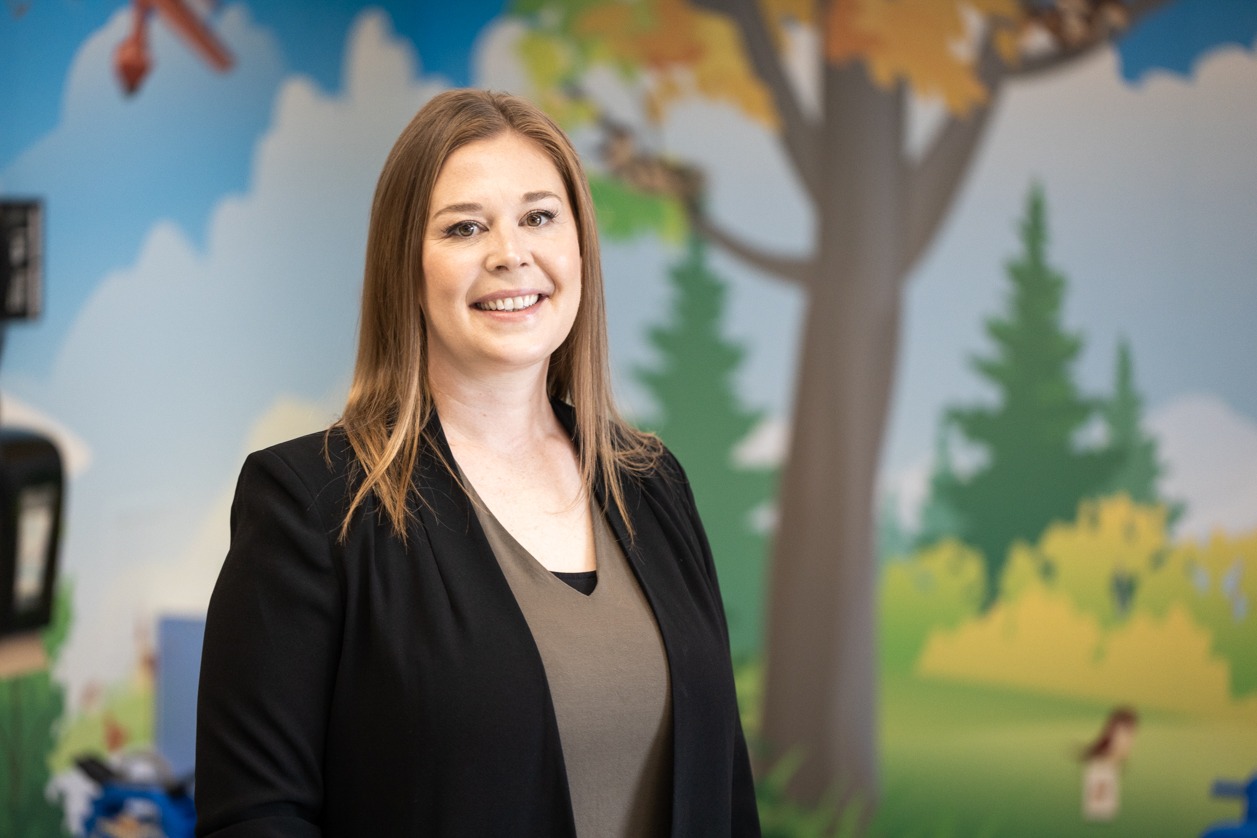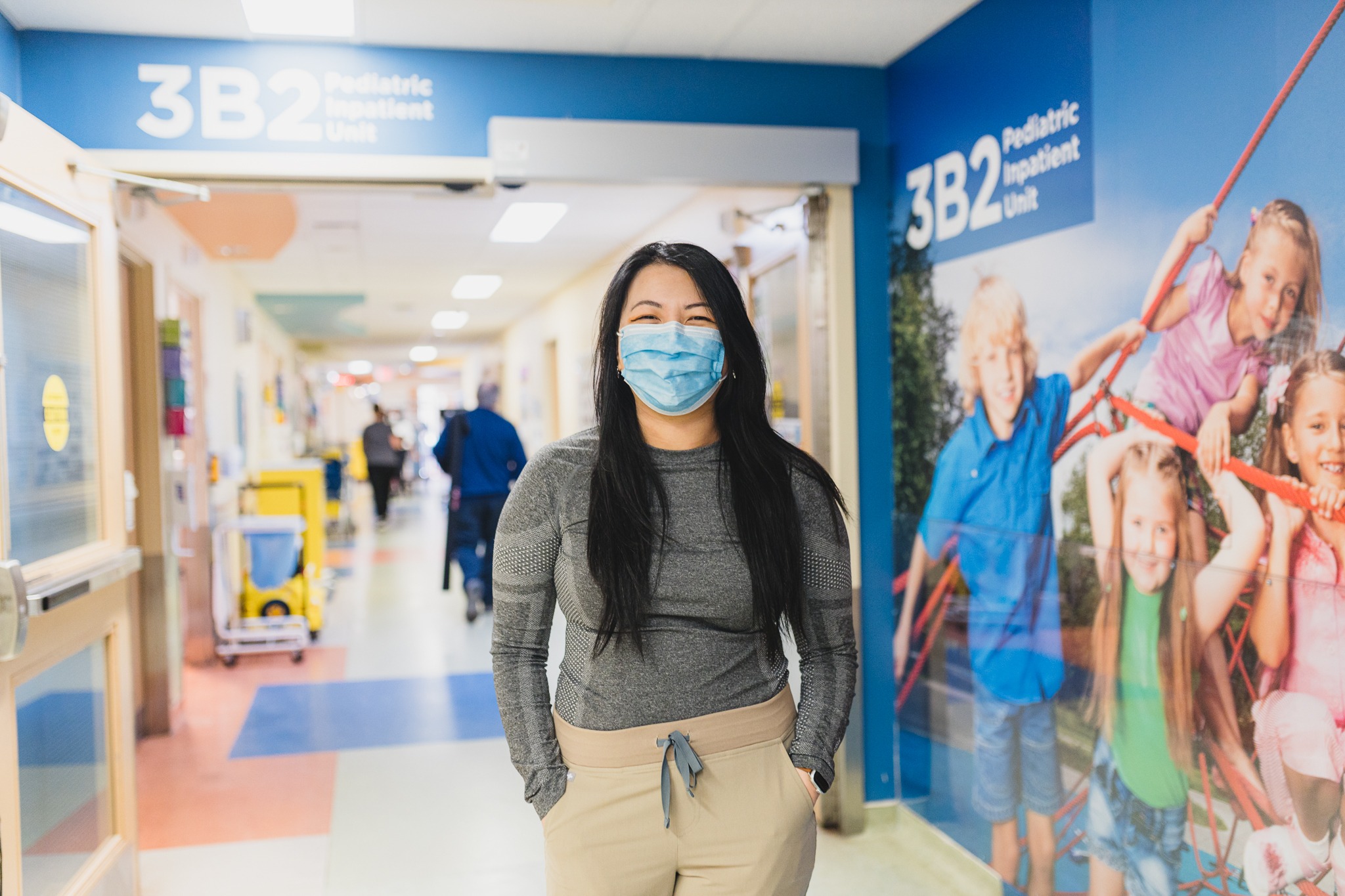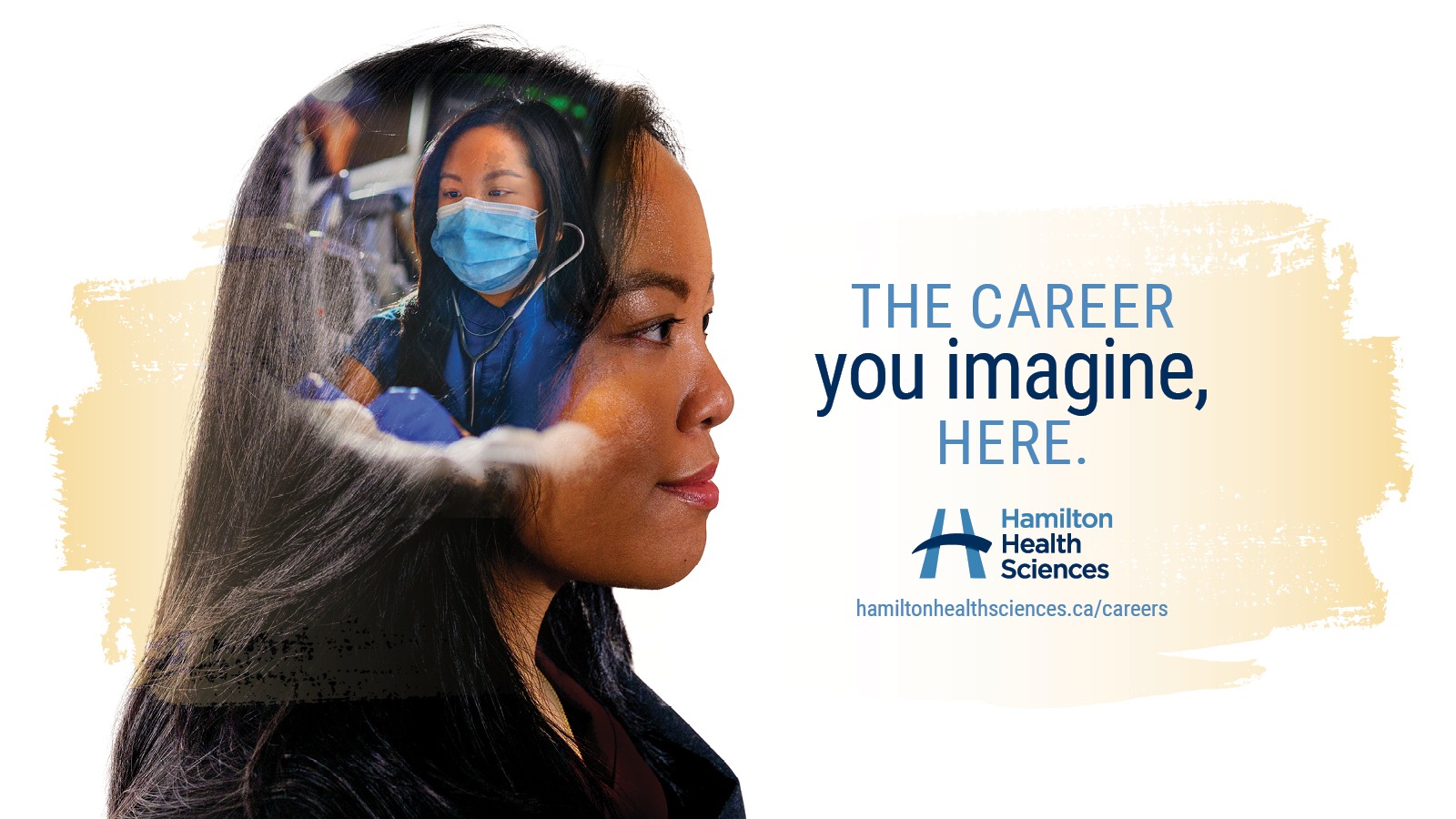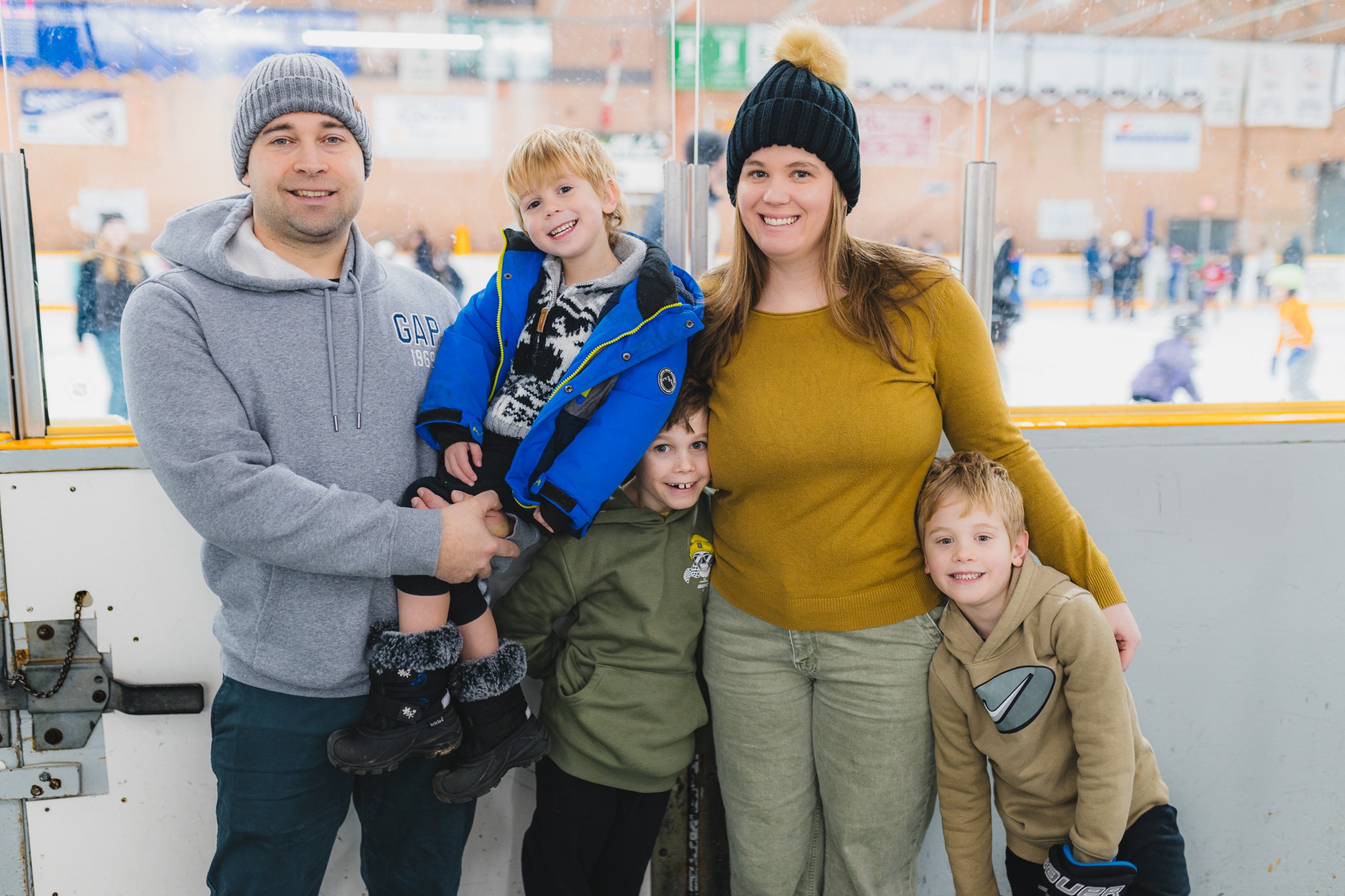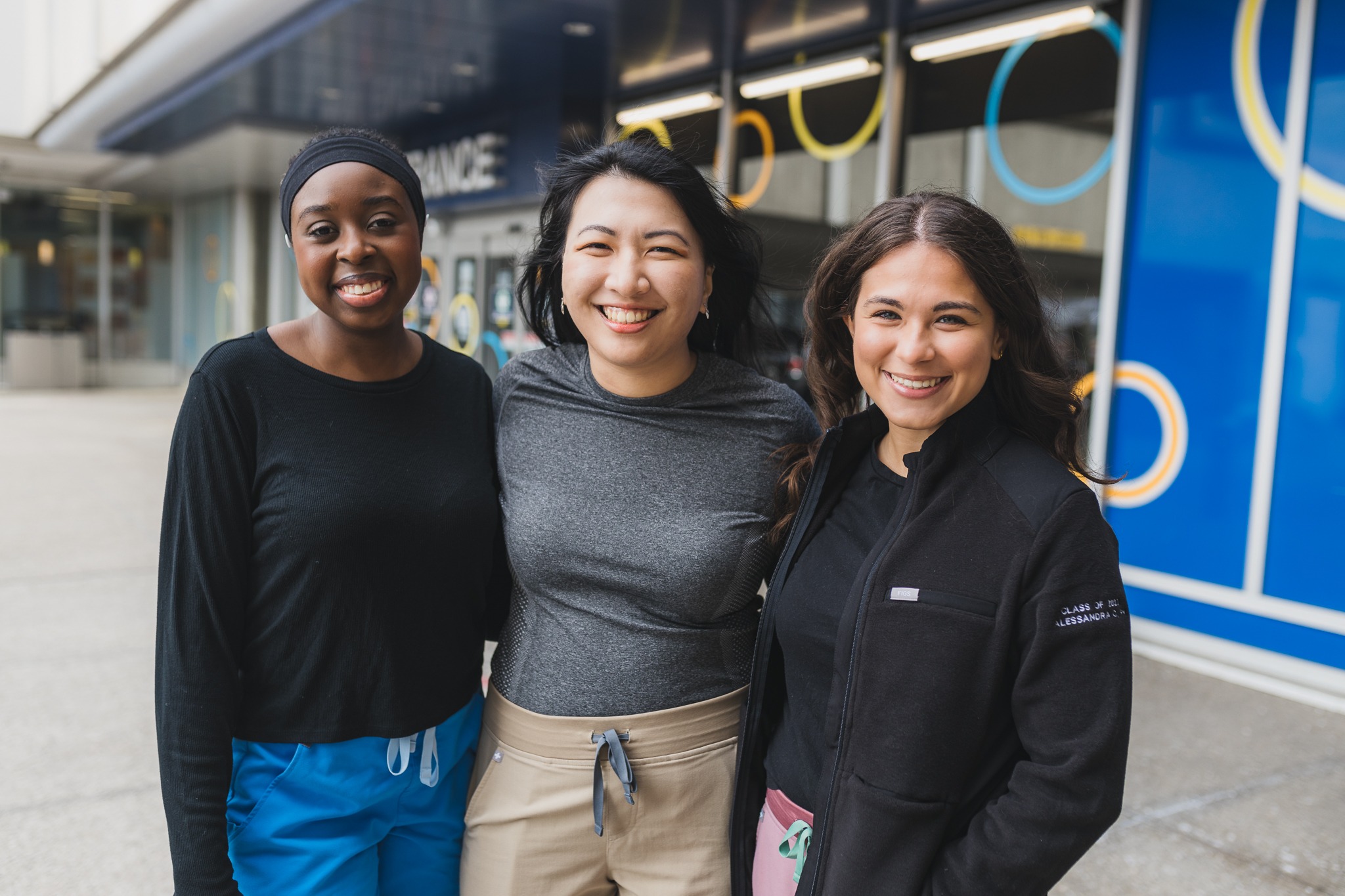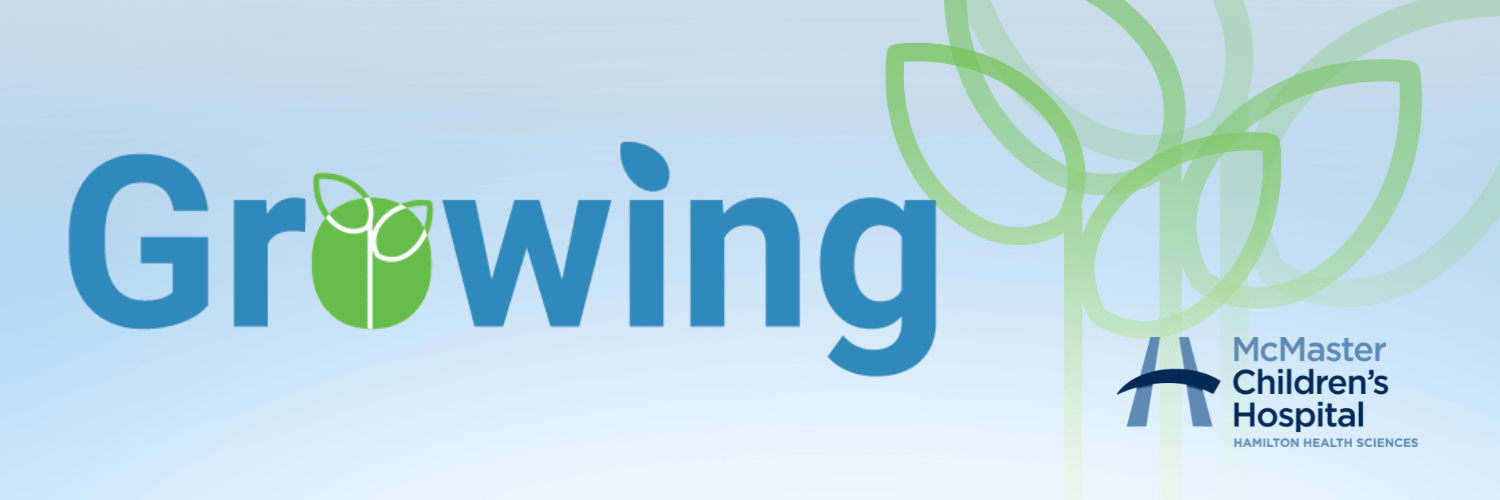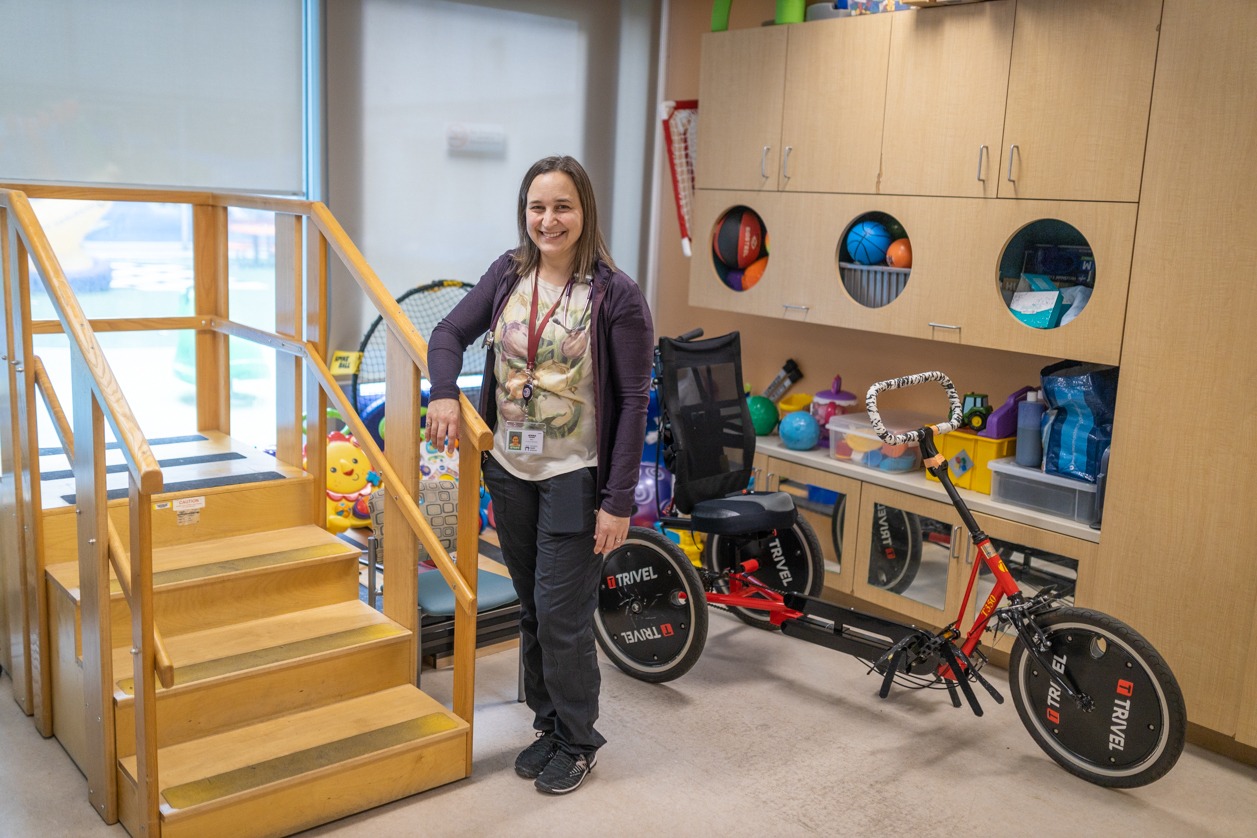
Physiotherapist finds work-life balance at McMaster Children’s Hospital
Last July, the province announced a $330-million investment in pediatric health care, which, when combined with other investments over the past 18 months, resulted in over $48 million in new funding for Hamilton Health Sciences’ McMaster Children’s Hospital (MCH). It’s the largest investment ever made to MCH, and resulted in the creation of 300 new positions supporting children’s health care.
Finding meaningful work at MCH
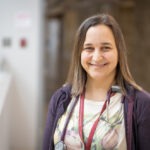
Jenna Keown, pediatric physiotherapist
When Jenna Keown became a parent, her vision of her dream job changed to better accommodate family life.
Keown launched her physiotherapy career 11 years ago after graduating with a master of science degree in physiotherapy from McMaster University. Prior to that, Keown attended the University of Waterloo where she earned a bachelor of science degree in kinesiology and a research-based master of science degree in kinesiology, specializing in neurosciences.
Her early career
Fascinated by the study of the nervous system, Keown set her sights on helping people living with spinal cord injuries. This started with completing an international neuro-rehabilitation opportunity in London, England and working with acute-care neurosurgery patients at a Toronto hospital. She then switched to the private sector helping people injured in motor vehicle accidents. Most of her clients were adults. “But I usually had a few pediatric clients as well, since children are also involved in car accidents,” says Keown, who found herself especially enjoying working with kids.
Finding work-life balance
Keown went on to have two children of her own, now aged three and six. Her previous job made work-life balance more challenging with a young family, so she started considering a job change and applied to the Pediatric Intensive Care Unit (PICU) at MCH, where she joined as a pediatric physiotherapist last October. The position Keown filled was created through a combination of the new provincial funding and additional funds from Critical Care Services Ontario.
“My quality of life has improved significantly since I started working here.”
“When I was job hunting, I contacted friends and former classmates who worked at MCH to ask what it was like there,” says Keown, who works three days a week in the PICU’s level two unit, caring for patients who no longer need the highly intensive care of the PICU but aren’t quite ready to return to a ward room. “Everyone I talked to recommended McMaster Children’s Hospital as a great place to work.”
Mentorship from MCH colleagues
A typical day for Keown includes working with the care team, families and patients to assess, plan and provide physical therapy and exercises focused on achieving early activity to help regain strength and endurance. This has given Keown the opportunity to exercise her passion for working with young patients with neurological conditions including cerebral palsy, brain and spinal injuries, as well as patients recovering from complex orthopedic surgeries, post-operatively.
“It was a change to go from working mostly with adults to working in the PICU but I received a lot of mentorship and support from my MCH colleagues to make the transition,” says Keown. “My colleagues have been absolutely wonderful. Everyone welcomed me with open arms. Overall I’m finding the work very rewarding.”
As a Dundas resident, MCH is also a short commute. “My quality of life has improved significantly since I started working here,” says Keown. “Working at MCH is the perfect fit.”
Learn more about how we’re growing McMaster Children’s Hospital.

